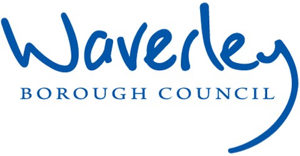 Abraham Lincoln
If given the truth, the people can be depended upon to meet any national crisis...
Abraham Lincoln
If given the truth, the people can be depended upon to meet any national crisis...
 Guildford news...
for Guildford people, brought to you by Guildford reporters - Guildford's own news service
Guildford news...
for Guildford people, brought to you by Guildford reporters - Guildford's own news service
Community Infrastructure Levy Bills Were Correct Hears Waverley Council Committee
Published on: 27 Mar, 2025
Updated on: 28 Mar, 2025
local democracy reporter
Families hit with bills of up to £70,000 by Waverley Borough Council were correctly charged – officers have said.
At least 20 people have been slapped with community infrastructure levies (CIL) with at least one saying they’ve been threatened with court action for what they thought was a simple extension.
Waverley Borough Council has promised to conduct a review into how and why so many have been stung with surprise planning bills and take “particular discretion” on any new homeowner applications to avoid repeats going forward.
Those who think they may have been mischarged – likely due to an oversight in applying for an exemption – can apply for case-by-case review, but officers have stressed that every bill sent has been done so correctly and in accordance with the law.
Only those who would have likely been exempt had the correct processes been followed stand any chance of having their fees waived – the Local Democracy Reporting Service understands.
The situation has been labelled an appalling injustice by the Conservative leader at Waverley Council who added: “we will continue our fight on behalf of these victims”.
The issue was re-examined at the Monday, March 24 meeting of Waverley Borough Council’s audit and risk committee.
See also: Council Agrees to Review Godalming Couple’s £70k CIL Charge
Traditionally CIL is paid by developers to support an area. Common examples would be a community building as part of a major housing estate, or cash to offset impacts.
Most new developments of over 100 sq m, or that creates a new home, are potentially liable for the levy. The majority of residential annexes, extensions and self-built homes are exempt – but often these need to be applied for.
Councillors heard that not a single resident had been wrongly issued with their bills and that, by the letter of government legislation, they should stand.
“We have acted completely in accordance with all regulations that we’ve serviced. They’ve been served correctly.” the meeting heard.
“No notices have been issued to a non-CIL liable development. We have acted completely in accordance with all regulations that we’ve serviced. They’ve been served correctly.”
The response was to questions over the scale, both in number and value, of letters issued demanding payment following a series of complaints.
The highest profile was the couple charged £70,000 after being granted planning permission by Waverley Borough Council to demolish and replace an existing extension at their Godalming home.
It was originally considered exempt but later amendments annulled this and the huge bill soon landed on their doorstep.
They were given 60 days to pay or their home would be at risk of repossession with the possibility of imprisonment.
Officers told the meeting: “We are absolutely certain that we have operated (within the legislation) and we have not charged CIL on any development which should not have been charged – or if the situation has changed for example someone may have said to begin with this was a self-build and then it came to light that it wasn’t, then we’ve acted accordingly once that citation has changed.
“What has happened, and the number of really difficult cases that have been highlighted to members, is when people haven’t followed the CIL regulations because they are so rigid.
“In lots of cases, people’s professional agents haven’t understood and followed the steps they’ve inadvertently led themselves into this situation where they become liable – or if a homeowner has made an amendment to their scheme and gone from under 100 sqm to over without really realising what that meant in terms of the CIL and they’ve found themselves in these really difficult situations where they’ve suddenly been presented with a liability notice correctly but for quite large sums of money that they haven’t planned for.”
“We’re really clear that we haven’t acted illegally. But we are dealing with a very very difficult piece of legislation.”
Since 2019 the council has collected about £30 million in CIL of which about £12.7 million remains unspent.
Leader of the Conservative opposition at Waverley Council, Jane Austin (Bramley & Wonersh) said: “The overriding intention of CIL is for residential homeowners and self builders to be exempt.
“This was evidenced by a recent KC Douglas Edwards legal opinion which stated that, ‘…a Charging authority (Waverley) has full powers to withdraw a liability notice for whatever reasons they see appropriate and has a duty to act responsibly where pursuing a liability could result in hardship, be oppressive or disproportionate such as where a homeowner becomes liable for CIL for a residential extension simply by reason of a claim for an exemption not having been made on a correct date’.”
“We are representing a number of Waverley residents who together have been charged CIL amounting over £1 million. These people have had to remortgage, to sell their homes on threat of imprisonment for non-payment, they have suffered enormous trauma and stress because of the CIL policy which Waverley has adopted and chosen to enforce.
“I am extremely disappointed to see Waverley Borough Council’s attitude which feels like back covering rather than genuinely recognising there is an issue and trying to help. Meanwhile right now there is £13.55m of unspent CIL sitting in Waverley’s bank account.
“This is an appalling injustice which must be righted. Together with Cllr Lauren Atkins we will continue our fight on behalf of these victims.”
Those looking to request a discretionary review can do so from June 1 through to May 31, 2026.
The council added that it hoped to change the system as part of its Local Plan.
Responses to Community Infrastructure Levy Bills Were Correct Hears Waverley Council Committee
Leave a Comment Cancel reply
Please see our comments policy. All comments are moderated and may take time to appear. Full names, or at least initial and surname, must be given.Recent Articles
- I Will Not Be Voting in the County Council Election Today
- Home-to-School Transport Refused
- Devolution: Ministry Asks for Clarification of How £5 billion Debt Will Be Managed
- Website Maintenance
- Letter: The Younger Generations Might Learn from Our Experience
- Final Steam Train Signalled by Farncombe, Petersfield and Haslemere Signal Boxes
- New Toucan Crossing on Woking Road to Facilitate Weyside Urban Village Project
- Updated: Honesty Questioned as Waverley Scraps Ground Maintenance Deal
- Letter: Please Send Nominations for Design Awards
- Notice: Do You Need Nature on Prescription?


Recent Comments
- Ricky Sonn on Wildlife Group Plans To Release Beavers To Revive Surrey Wetlands
- David Roberts on Letter: The Younger Generations Might Learn from Our Experience
- Jim Allen on Devolution: Ministry Asks for Clarification of How £5 billion Debt Will Be Managed
- Martin Elliott on New Toucan Crossing on Woking Road to Facilitate Weyside Urban Village Project
- Helen Clear on Letters, Comments, Complaints Policy and Privacy Statement
- Frank Emery on Royal Surrey Patients Complain Changes Won’t Fix Underlying Parking Problem
Search in Site
Media Gallery
Dragon Interview: Local Artist Leaves Her Mark At One of England’s Most Historic Buildings
January 21, 2023 / No Comment / Read MoreDragon Interview: Lib Dem Planning Chair: ‘Current Policy Doesn’t Work for Local People’
January 19, 2023 / No Comment / Read MoreA3 Tunnel in Guildford ‘Necessary’ for New Homes, Says Guildford’s MP
January 10, 2023 / No Comment / Read More‘Madness’ for London Road Scheme to Go Ahead Against ‘Huge Opposition’, Says SCC Leader
January 6, 2023 / No Comment / Read MoreCouncillor’s Son Starts Campaign for More Consultation on North Street Plan
December 30, 2022 / No Comment / Read MoreCounty Council Climbs Down Over London Road Works – Further ‘Engagement’ Period Announced
December 14, 2022 / No Comment / Read MoreDragon Interview: GBC Reaction to the Government’s Expected Decision to Relax Housing Targets
December 7, 2022 / No Comment / Read MoreHow Can Our Town Centre Businesses Recover? Watch the Shop Front Debate
May 18, 2020 / No Comment / Read More














Graham Hughes
March 28, 2025 at 10:32 am
This story is almost unbelievable but sadly it is just one more example of the way Britain is changing for the worse. We are becoming a society addicted to penalties and jeopardy for missing something in the “small print”.
From car parks which hit you with a penalty for taking too long before making a valid payment, through train companies exacting the default (ie penalty) fare for having the wrong type of ticket, to road authorities imposing fines for vehicles with one tyre overlapping the white line demarcating a bus lane. It is becoming an expensive risk to do almost anything these days.
I no longer recognise the country I was born in, because that was one which used to pride itself on a sense of fairness and justice. It seems that excessive legalism is becoming incompatible with justice.